- Home
- Amy Harmon
The Queen and the Cure Page 3
The Queen and the Cure Read online
Page 3
Their awe made Kjell grind his teeth and snap at anyone who looked at him for too long. His head ached dully and the tips of his fingers were numb from holding on to his temper. He ate with purpose and no pleasure, attempting to restore his energy and plug the slow drip of patience from his chest. Unable to do either, he immediately retired far from the fire and his men’s itchy reverence, barking at Jerick when he tried to follow.
“Make sure the woman is given what she needs and none of what she doesn’t, and leave me alone.”
“Yes, Captain,” Jerick agreed, falling back instantly.
Kjell tossed his pallet to the ground and, without even removing his boots, fell onto it and into a sleep as deep and dark as Sasha’s eyes.
Now morning had come, and he watched her, wondering if those eyes were as dark as he remembered. When she opened them suddenly, coming awake like she was accustomed to fearful slumber, he saw they were exactly that dark. They disturbed him, the pupils indistinguishable from the surrounding hue. He’d seen skin like hers—pale and speckled like a sparrow’s egg, but never in combination with eyes so black. She stretched, shuddering a little as she did, her body shaking off the vestiges of sleep.
She’d caught him looking at her—staring—and it embarrassed him. He was not accustomed to feeling uncomfortable, especially not in the presence of someone who meant nothing to him, and he rose to his feet, shaking the dust from his clothes and rolling his pallet tightly, securing it with twine. After a moment, she rose as well, shrugging off his cloak and handing it to him. He took it without comment. The sun was already heating the earth and would be relentless before long. He watched from the corner of his eye as she wrapped the pale blue cloth over her hair, creating a cowl that shaded her face. She crossed the long ends of the cloth over her chest and tied them at her waist to keep them from catching the breeze.
“There is sickness in Solemn,” she murmured—startling him further—her voice oddly sweet yet still rough with sleep. “There is sickness there and you are a Healer.”
“What kind of sickness?” he asked.
“Fever. Delirium. The hair falls from the heads of the very young and the very old. The children aren’t growing. Some are malformed.”
“Is that why you fell? Were you sick?”
“No,” she murmured, and he realized he didn’t know which question she answered. “I was not sick, but my master was.”
“Your master?”
“I was a . . . slave.”
“Why were you a slave?” he asked. She frowned and her brows furrowed slightly. He wanted to know the circumstances of her servitude, but she didn’t seem to understand.
“Why are you a Healer?” she retorted, as if healing and slavery were similar. He snorted, struck by the comparison, but she did not explain herself further. Instead, she took several hesitant steps toward him, her hands folded demurely. Without warning, she dropped to her knees, her eyes on the ground. Then she leaned forward and touched her forehead to the dirt, inches from his feet. Her hair pooled around her like a shroud. “My master is dead. You healed me. I belong to you now.”
He drew her to her feet, his hands wrapped around her thin arms, and set her away from him adamantly, shaking his head.
“No. You do not. I healed you of my own free will. I lay no claim.”
“I will stay with you.”
“No! You will not.” His voice was harsh and far too loud, and he noted with chagrin the interest of the men around them who were no longer sleeping. One of them laughed, though he smothered it. Kjell glowered, and they were immediately busy with their boots and bedrolls.
Sasha kept her head bowed, her veil hiding her face. Satisfied that she had heard him and that she would obey, Kjell stepped away.
She followed.
He climbed to the water between the rocks, and she moved silently behind him, far enough that she wouldn’t bump into him if he stopped suddenly, but close enough to make him bristle with annoyance. His bladder was full and his temper was short, and he needed her to give him some solitude. She seemed attuned to this, and moved away from him suddenly, behind an outcropping, and he did the same, finding a moment’s privacy before she rejoined him at the waterfall.
He cleaned his teeth and washed his face, his arms, and his neck, scraping the beard from his cheeks with his blade, growling at her when she offered to do it for him. He gave her his soap and his tooth powder, and she thanked him humbly, making quick work of her own ablutions, weaving her long hair into a rope and rewrapping the cloth over it again.
“Will you go to Solemn?” she asked as they made their way back to the men and the horses.
“That is why we came.”
“You came . . . for Solemn? You are the forces of the king. I thought the forces of the king hunted the Gifted.”
“The king is Gifted.” Not to mention the king’s brother. “I am hunting Volgar.”
“The birdmen?” she asked, clearly surprised. “There are no Volgar here.”
“None?” He stopped and stared down at her, disbelieving. “There are rumors of great devastation in Solemn.”
“The only devastation in Solemn is sickness.” She stared up at him soberly.
Kjell groaned. The Creator save him from his gift. He wanted to kill birdmen. Not play nursemaid. If there was illness in Solemn, he would put his men at risk. If he exposed them to sickness, they would only take the disease to other parts of the kingdom, to other lands in Jeru. He could not raise the dead, and he could not heal an entire village. The very thought made his heart cease and his knees tremble.
“You cannot heal them all,” she said quietly, divining his thoughts. “But you could heal some.”
He doubted he could heal even one. “I cannot bring my men to a village stricken with disease.”
She nodded hesitantly, but she did not drop her gaze. “I . . . understand . . . but I do not believe they would become sick.”
“Why?”
“Because the sickness is not in the air.”
He waited, his hands on his hips, wanting to mount his horse and ride away, but his guilt compelled him to listen.
“I believe the disease is in the water that comes into the village from the east. If your men will fill their carafes here, wash themselves here, and stay away from the water from the eastern stream, they should be fine. Some people seem resistant to it. The strong and those in their middle years are less affected. Or maybe it is just slower to grow in them. But many people are sick.”
“So if I heal them . . . they will grow sick again,” he surmised. “Because they have to drink to live, and this little brook is not enough to support a village.” He tossed his hand toward the stream that wasn’t much more than a steady trickle collecting in a shallow pool before it continued on its way between the rocks.
“If you heal enough of them, maybe they will be well enough to leave.”
Kjell cursed, running his hand through the hair that brushed at his shoulders. Images of traveling back to Jeru with a thousand refugees straggling behind him made him grind his palms into his eyes to obliterate the thought.
“Why haven’t they left already? The villages to the north bear no signs of sickness. I’ve come through every village between here and Bin Dar.”
“The people don’t believe me. They don’t believe there is sickness in the water. I need to convince them. But I cannot go back to Solemn alone,” she said, her voice low.
“Why is that?”
“They drove me from them.”
“Drove you . . . from them,” he repeated flatly.
“Over the cliff,” she explained.
“They forced you over the cliff?” Anger lit his voice, though it was not directed at her. Still, there would be a reason for such actions, even if it sickened him. “Why?”
“I saw it. I saw them drinking the water. And I saw them growing sick. I told the elders.” Her words from the night before took on new meaning.
“You saw it?”
“I see many things.”
“Are you Gifted?” he asked quietly.
“I cannot heal.” She shook her head as if his was the only true gift. It was not an answer, and his mouth hardened at the evasion.
“Are you Gifted?” he repeated more forcefully.
“I cannot heal . . . but sometimes I can save,” she amended. “I have learned that if I remain silent about what I see, it always comes to pass. Sometimes, even when I’m not silent, what I see comes to pass, and I can only brace myself. But there have been times when I’ve been able to . . . move people from the path of the storm.”
“You couldn’t save yourself from being run over a cliff?”
“No,” she whispered, and her eyes grew bright, black pools that shimmered with tears. She blinked rapidly. Then her gaze became distant, and she lifted her chin, letting the light caress her cheeks and the breeze tug at the tendrils of hair peeking out beneath her veil. He watched as several emotions flitted over her face before her features relaxed and her gaze sharpened on his once more.
“They know you are here.”
“Who?” he asked, bewildered. He was still caught in the memory of her broken body beneath the cliffs, struck by the changing expressions on her face, and distracted by the fire of her hair.
“They are coming. The elders of Solemn. They want to trade with you.”
“Trade? We are soldiers. Not peddlers. We have little beyond our weapons and horses, and those are not for sale.”
“Not trade,” she shook her head, modifying her statement, speaking slowly as if trying to unravel something she didn’t completely understand. “They have . . . offerings. The night watch must have reported your presence.”
“Why do they bring gifts?”
“I cannot see everything.” She shook her head again. “Intentions are especially difficult. Maybe they know you are the King’s Guard, and want to bring you presents in exchange for your favor. Perhaps they are afraid you know of the sickness, and that you will take advantage while they are weak.”
A whistle pierced the air, signaling to Kjell, verifying Sasha’s prediction. Kjell abandoned his questions and started down the hill to the clearing, but Sasha descended more slowly, tucking herself behind the soldiers scrambling to ready themselves before the visitors arrived. Kjell mounted Lucian, desirous to be in a position of authority, even if there was no threat. In the near distance, winding down the mountainous pass, six men approached, not on horses, but on great, lumbering camels with lashes that curled above their enormous nostrils. The elders were dressed in pale robes and, like Sasha, their heads were covered, protected from the sun. They came to a stop with a wide gulf still dividing them from Kjell and his men.
“I am Kjell of Jeru,” Kjell greeted, his voice raised to be heard. “Captain of the King’s Guard. We are here in search of Volgar. We are here only to serve. Not to condemn or . . . collect.” There’d been a time when the King’s Guard had accompanied the tax collectors as well. Thankfully, those days were a thing of the past. The provinces sent money to the kingdom of Jeru for the support of the guard and the protection of the realm. Collecting it was now a duty of the lord of each province.
The bearded man in the center of the group, his face as thin and dark as the trees that grew in the Drue Forest, responded, “We have heard of you, Kjell of Jeru. You are the king’s brother.”
Kjell would not deny his relationship, but he also refused to feel any pride in his status. The blood that connected him to the king was not blood he was proud of. He also wasn’t certain being notorious was a good thing. His past was not especially pristine. He simply waited without confirmation for the man to continue.
“Greetings to you and your men. I am Syed. We’ve brought gifts for His Majesty and ask that you extend our fealty to him when you return to Jeru City.” The suggestion was veiled, but Kjell did not miss it. The elders had ridden out of the village to head them off. It would be greatly appreciated if the King’s Guard would continue on, never entering Solemn.
It was entirely the wrong move. Kjell hated to be told what to do.
“That is very gracious, Syed. But we don’t need gifts. A meal, a bath, and maybe a day’s rest is all we require. Our horses could stand the rest and food as well. Then we will be on our way. Can your village accommodate us?” Kjell’s voice was mild but his eyes were shrewd, testing his audience. So far, everything Sasha had said was proving true.
The bearded man stiffened, and the men around him squirmed, exchanging weighted glances.
“There is . . . trouble in our village,” Syed hedged. “Some of our people are sick. It would be wise for you to pass by.”
“Our captain is a skilled Healer,” Jerick spoke up. “He healed one of your women last night. She’d fallen and was near death. Perhaps he can bring relief to your village.” Jerick’s voice rang with a sincerity few would sense was false. Kjell would have silenced him—violently—had it not served his purposes. Clearly Sasha had confessed something of her story to Jerick the night before.
“Sasha!” Kjell called to the woman who hid herself behind his men. “Come forward, woman. Show them you are well. They must have been concerned when you didn’t return last night. The wolves were out.” He felt his men shift and part, but didn’t turn his head. He heard Sasha come forward and saw her presence noted on the faces of the elders of Solemn before him.
One of the six, a white-haired man with great jowls, drooping eyes, and a sorrowful air, spotted Sasha and gasped visibly, his chest lifting beneath his yellow robe, his hands tightening on his reins. The animal he rode felt his tension and backed up obediently. The man wanted to bolt, and he wasn’t the only one.
“She is a witch,” a fat elder jeered. “She has lived among us for three summers. She brought evil with her. Fires and floods. Pestilence and disease. We ran her out at the end of our spears, but she flew from us.”
Kjell regarded him darkly, seeing the crumpled body of the woman in his mind’s eye, her body broken and bleeding. She had not flown. If she could have flown, Kjell would not have had to heal her bones and sing her spirit back to her flesh.
“It is against the laws of Jeru to harm the Gifted,” he rebuked.
“She made our people sick. She will make your men sick too. Your horses will die, and your bones will turn white on the plains of Quondoon. Now she sits among you, and you will suffer like we did.” This from Syed, his eyes dancing between Kjell and Sasha, who stood before the elders, inexplicably alive and well. She said nothing to defend herself—she didn’t speak at all—and Kjell followed her lead. He’d learned there was little that could be said to change a mind. Especially the minds of those so convinced of a woman’s guilt they would run her off a cliff as punishment for her crimes. He would let her decide the fate of those who had condemned her. It was something King Tiras would have done.
“What should we do, woman? Do the people of Solemn deserve healing?” he asked, his hand on his sword, his eyes on the men who wished him gone. So be it. He wanted to go. He would leave the village in their misery.
“All people deserve healing,” Sasha answered immediately, and Kjell’s heart sank in his chest. The man on the right, the man with the sagging jowls, retreated farther.
The leader of the elders raised a trembling finger and pointed it at Sasha. “You are not welcome in Solemn,” he hissed.
“Prepare your people, Syed,” Kjell said, dismissing him. “We’re coming to Solemn.” He waved the elders off, and his men closed ranks around him, swallowing him up protectively, herding the elders backward at the end of their lowered spears, quartering no further argument or conversation. Kjell waited until the elders had turned, spurring their camels back toward Solemn, their gifts rejected, their fears realized.
“Jerick, take a dozen men. Go to Solemn. Make sure the elders don’t stir up trouble. I will not be far behind. And Jerick?”
“Yes, Captain?”
“You do not speak for me. Ever. I choose to heal w
hom I will. You volunteer that information far too freely. Do not do it again, or I will send you back to Jeru City.”
“Yes, sir.” Jerick’s shoulders tightened defensively, but Kjell wasn’t finished. “Do not drink the water in Solemn. Any of you. Drink only what is in your flasks. And wait for my arrival.” Jerick’s brows rose in surprise, but he nodded, turning his horse and yelling orders to the soldiers already mounted around him.
When Jerick and the first group of soldiers had departed, Kjell instructed the men who remained to fill their carafes, break camp, and prepare their horses. When they rushed to do his bidding, he dismounted and turned to the silent Sasha. She did not look at him. Her gaze was blank and fixed in the direction the elders had gone.
“You do not have to go into Solemn. I want only to see what is happening there so I can ascertain the risk. Then I will be taking my men and moving on. I have no wish to remain in Quondoon any longer than necessary. I want to fight beasts . . . not small minds.”
“I do not draw evil to me,” Sasha whispered, as if she hadn’t heard him at all. “I do not bring pestilence or fire. I do not cause suffering. But sometimes I know when it is coming.”
Kjell grimaced but didn’t silence her.
“I only tried to warn. But warnings unheeded often become . . . tragedies. And I was easy to blame. My master—Mina—told her brother, Byron, an elder who is well-respected among the people, about my visions. He told the other elders, and they started to blame me for causing the things I saw. When Mina grew ill and Byron came to see her, I told him what I’d seen . . . about the water.”
“This Byron—he didn’t believe you?”
“He acted as though he did. He told the elders. But he didn’t warn the village. Or if he did, they didn’t believe him either.”

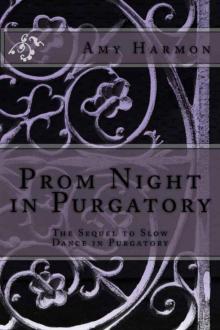 Prom Night in Purgatory
Prom Night in Purgatory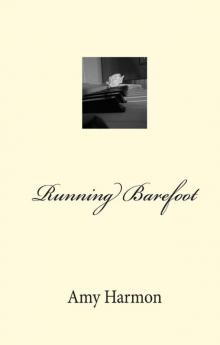 Running Barefoot
Running Barefoot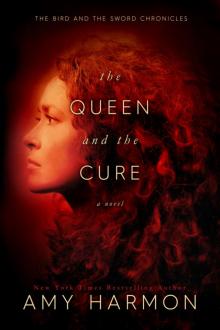 The Queen and the Cure
The Queen and the Cure The Smallest Part
The Smallest Part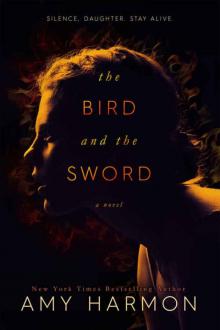 The Bird and the Sword
The Bird and the Sword The Song of David
The Song of David Infinity + One
Infinity + One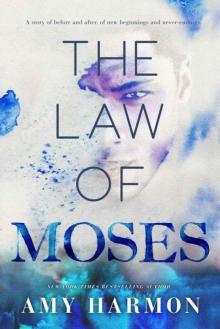 The Law of Moses
The Law of Moses A Different Blue
A Different Blue From Sand and Ash
From Sand and Ash What the Wind Knows
What the Wind Knows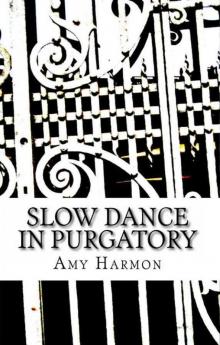 Slow Dance in Purgatory
Slow Dance in Purgatory Romance Through the Ages
Romance Through the Ages